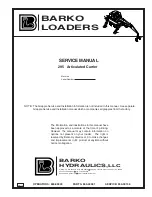
AVTMBITE 3 Rev 8 April 2014
17
4
TEST PROCEDURES
Overview
The BITE 3 is used to test a battery string while the dc system is on-line and
floating. It can store measurements on a per cell/jar basis as well as per string
basis. It has memory for about 22,000 60-cell strings in a database structure to
keep track of all of the data. PowerDB is the tandem software package that keeps
track of data and information about sites, strings and cells.
Using the BITE 3 to test a battery string involves the following steps:
1.
Perform pre-test activities.
2.
Turning on the BITE 3 and connecting the lead set.
3.
Select a site/string and take measurements.
4.
Perform post-test activities.
The BITE 3 uses a technique (patent application submitted) to eliminate the
need for a CT under normal circumstances. Normally, the current in the cell/jar
being measured must be measured to accurately calculate impedance (Z = E/I).
Optional lead sets are available to test different battery configurations. These
optional lead sets include an “AMP/Burndy” lead set for testing batteries with
harnesses using an AMP/Burndy style connector, a Quick Disconnect lead set
for smaller batteries employing spade-type battery terminals (posts) and a Kelvin-
style, spring clips for batteries with small, difficult-to-access posts. Tests using
these lead sets are also described later in this chapter.
Step One: Perform Pre-Test Activities.
The best reproducible test data are obtained when the battery is floating.
1.
Ensure the battery is floating and not being recharged or discharged.
2.
Inspect all of the cells and intercell connections. Look for leaking cells,
bulged cells or cells that are in a weakened state.
Summary of Contents for BITE 3
Page 2: ......
Page 3: ...BITE 3 Battery Impedance Test Equipment...
Page 22: ...M AVTMBITE 3 Rev 8 April 2014 16 M...
Page 28: ...M AVTMBITE 3 Rev 8 April 2014 22 M...
Page 32: ...M AVTMBITE 3 Rev 8 April 2014 26 M...
















































